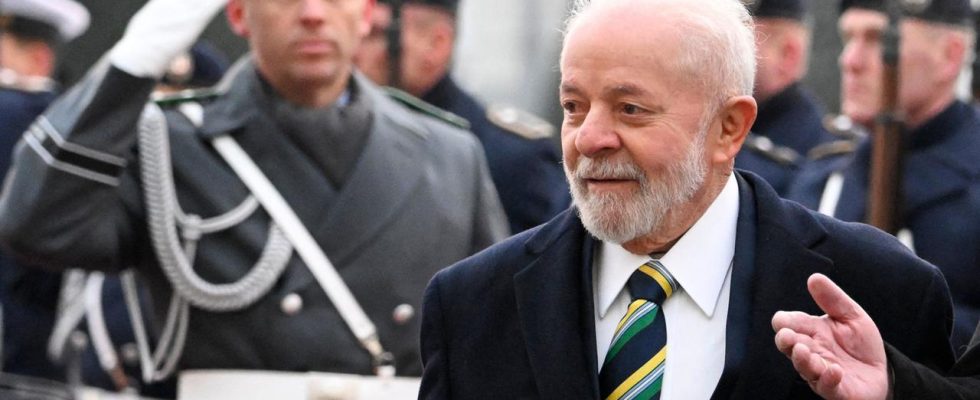interview
Brazilian President Lula is in Berlin for talks. The relationship between the two countries is better than it has been for a long time, says political scientist Peter Birle. Brazil is an ideal partner – companies will also notice that.
daily News: After many years, there are again discussions at the highest level between Germany and Brazil. How do you assess the relationship between the two countries?
Peter Birle: I think the relationship is better at the moment than it has been for a long time. This has to do with the fact that President Lula and Chancellor Scholz have known each other for a long time. The SPD and the Workers’ Party in Brazil are relatively close politically and we saw in Brazil this year that the German delegations, whether from politics or business, have, so to speak, given each other a hand.
After four years of Bolsonaro, there was a big sigh of relief in Germany – and there is a lot of interest in Brazil. And conversely, Brazil is also very interested in further expanding the partnership with Germany, despite all the differences that exist.
daily News: The interest is primarily economic. They see great potential in Brazil. In which areas could the Brazilian state help us advance economically?
Birle: Brazil is already an important partner. There are around 1,400 German companies that are active in Brazil. But Brazil is potentially a very important partner in the areas of energy security, especially in the current world situation and also in the situation that Germany finds itself in – for example, when it comes to green hydrocarbons or cheap production of emission-free products.
Brazil is a very important partner and there are still many opportunities to further expand the relationship.
“Brazil is a stable political environment”
daily News: But aren’t what you just mentioned all areas in which the German economy could actually find partners in China? What are the advantages in Brazil compared to China?
Birle: That’s exactly the point. Brazil is a democratic country. With its democratic institutions, Brazil has managed to survive four years of a right-wing authoritarian President Bolsonaro, with a few scratches but well. So not only is Brazil economically stable – an unusually positive economic development this year – but Brazil is a stable political environment.
Brazil is a country that is also very close to us culturally. Next year we will celebrate 200 years of German immigration in Brazil. In this respect, it is not just the economic conditions that have improved in recent months.
A tax reform is pending, and other important laws are on the way to further reduce this so-called Custo Brasil – i.e. the special costs that have always been associated with Brazil. Brazil is an ideal partner for Germany politically and culturally. And I think German companies are also noticing this more and more.
daily News: Now, of course, there is great hope that the long-discussed free trade agreement between the South American economic community Mercosur and the European Union is getting closer, perhaps even on the verge of being concluded. Do you think that’s likely? Why is it so difficult to cope with this so far?
Birle: To be honest: after last weekend, I think the chances of concluding this agreement are almost zero, although Germany and Brazil would both be very interested in it. But French President Macron made it clear over the weekend that he was against the agreement. And without France being there, it won’t happen.
In addition, there is a change of government in Argentina on December 10th. And future President Milei of Argentina has questioned Mercosur as such. So in this situation I think it is very unlikely – even if I personally would find it very positive, especially from a geopolitical perspective, that the agreement will come about.
“Agreement would be a very important geopolitical signal”
daily News: What consequences would that have for the European, but also for the South American economy?
Birle: I think the economic, direct economic consequences are not that serious, because this agreement has been negotiated for 20 years. Then, in 2019, a text was agreed upon, but it was not ratified because there were concerns, particularly from the European side, about the climate and environmental protection conditions in the treaty. But of course trading continues.
I would see the problem if this agreement doesn’t come about now as being that it would send a bad political signal. Because an association agreement is more than free trade. An association agreement between the European Union and Mercosur would be a very important geopolitical signal in this world that these two regions will continue to work together constructively.
Of course, economic relations will not get any easier if the agreement is not concluded, but they will continue. Of course, in some respects there is also a risk that Brazil will orient itself even more towards China in the next few years.
The interview was conducted by Romy Hiller, tagesschau24. It has been edited for the written version.
Anne Herrberg, ARD Rio de Janeiro, tagesschau, December 4th, 2023 1:00 p.m

